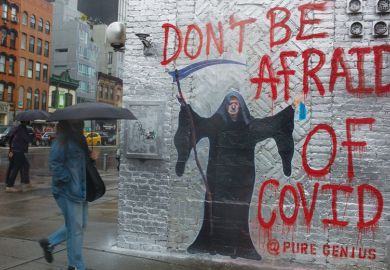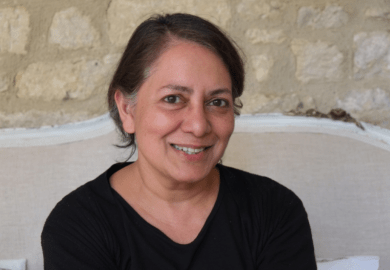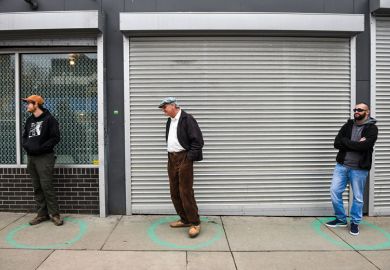Stanford University has taken the rare step of publicly rebuking one of its scholars, rejecting calls by Trump adviser Scott Atlas for Americans to resist pandemic-related restrictions on public gatherings.
The university acted after Dr Atlas, a senior fellow at Stanford’s Hoover Institution, suggested that people in Michigan should “rise up” against state orders to temporarily halt activities that include in-person college classes.
Stanford, in a brief statement posted to its website, said Dr Atlas “has expressed views that are inconsistent with the university’s approach in response to the pandemic”. Stanford has halted in-person teaching at its own campus to avoid the spread of Covid.
That statement, however, was widely regarded by Stanford faculty as insufficient, said Jeffrey Koseff, a professor of engineering. The faculty senate plans further reviews of the university’s handling of Dr Atlas and of its overall relationship with Hoover, Professor Koseff said.
The Hoover Institution – a conservative-leaning thinktank where Dr Atlas is on leave as a senior fellow specialising in healthcare economics – has been a concern for decades. It is regarded by many faculty as an entity that uses private donations to buy space on campus through which it issues partisan commentary with the Stanford imprimatur.
“It’s a very difficult relationship to explain,” Professor Koseff said.
The university raised its voice against Dr Atlas only after months of statements that aggravated Stanford medical experts. Dr Atlas is a former chief of neuroradiology at the Stanford University Medical Center. He is known for his expertise in brain and spine imaging, and has no specialisation in treating infectious diseases. Yet he has previously insisted that Americans avoid wearing masks or taking other steps to avoid Covid infection because of the potential value of achieving “herd immunity” to the deadly disease.
That has led to protests since September by more than 100 Stanford faculty, doctors, scientists and public health experts who regard Dr Atlas’ pronouncements on the pandemic as dangerous to public health.
It is among a series of cases in recent years across the US in which academics with prominent university affiliations have issued controversial or scientifically inaccurate statements, often outside their areas of expertise. Universities typically decline to push back, describing public commentary as a matter of free speech.
Stanford’s president, Marc Tessier-Lavigne, had been offering similar free speech defences for Dr Atlas. But Dr Atlas’ urging of a public uprising against the governor of Michigan, Gretchen Whitmer, “crossed the line” even for Stanford leaders, Professor Koseff said.
Ms Whitmer already had been enduring personal attacks from Mr Trump and his supporters, including an alleged kidnapping plot by a far-right militia group, over her attempts to control the pandemic.
In his Twitter posting, Dr Atlas castigated Ms Whitmer’s latest order shutting various public venues for three weeks to cope with surging infection rates in her state and nationwide.
“The only way this stops is if people rise up. You get what you accept,” Dr Atlas wrote.
He later issued another statement on Twitter saying he did not intend his posting to be an incitement to violence.
David Palumbo-Liu, a professor of comparative literature at Stanford, wrote on Twitter that he was “appalled, but not surprised” that Stanford and Hoover went a full day before responding to Dr Atlas’ call for the public uprising.
The university response was especially disappointing for its failure “to address his invitation to violence, which breaks every academic and civic standard”, said Cécile Alduy, a professor of French and Italian.
A Stanford spokesman declined to explain why the university saw no need to post any earlier rebuttal of Dr Atlas. “We issued the statement to clarify the university’s position and address concerns raised by individuals within the university community and beyond,” he said.
The Stanford faculty senate plans this week to consider calls for tougher action against Dr Atlas, and it has scheduled two meetings for the next academic quarter dedicated to the question of the university’s ongoing association with the Hoover Institution.
Register to continue
Why register?
- Registration is free and only takes a moment
- Once registered, you can read 3 articles a month
- Sign up for our newsletter
Subscribe
Or subscribe for unlimited access to:
- Unlimited access to news, views, insights & reviews
- Digital editions
- Digital access to THE’s university and college rankings analysis
Already registered or a current subscriber?








